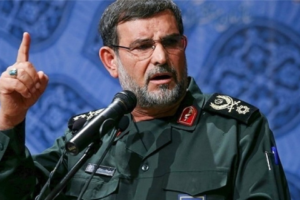The agreement on the return of prisoners of war between Armenia and Azerbaijan was concluded shortly after the second Garabagh war. These processes were carried out under the supervision of Russian peacekeepers, and for this reason, the number and identity of prisoners of war were handed over to Armenia by list.
However, the Armenian side still continues its claims regarding an obscure list of POWs. Armenian politicians, especially continue to shed crocodile tears over the so-called Armenian POWs in Azerbaijan. It has been exploiting this issue since 2020, playing the victim.
And who are they?
After the end of the Second Garabagh War, the Armenian side was supposed to ensure that the Armenians remaining in several territories of Garabagh left those territories and prevented their armament. However, Yerevan did not keep its promise and continued secretly to support armed separatist Armenians who did not want to leave Garabagh. Finally, by 2023, as a result of anti-terrorist operations, the threat in Garabagh was eliminated, and as a result, a group of individuals leading armed separatist terrorists were arrested.
Recently, the speaker of the national assembly of Armenia, Alen Simonyan, raised the issue again, begging the Dutch Ambassador to help “release” those so-called “POWs” kept in Baku prison.
And the question arises: How can the Netherlands help Armenia release Armenian terrorists?
First of all, Azerbaijan is not Armenia, and unlike Armenia, Azerbaijan is an independent country with its national interests, operating within its laws. Azerbaijan does not have patrons dictating its actions. As for the separatists in Baku prisons,” this topic is out of the question. Not because Baku is self-conceited, but because there are no Armenian POWs. As it was mentioned above, Azerbaijan released all POWs after the war following the 10 November Declaration. Those Armenians in Azerbaijani prisons violated the country’s laws and were arrested long after the cease-fire, which the Declaration does not cover.
Moreover, let us not forget that Armenia used to deny its interference in the Garabagh issue. They fabricated a myth that following the collapse of the USSR, the so-called “Garabagh ” emerged as an “independent country” like Azerbaijan. However, no country in the world, including Armenia, recognized the independence of Garabagh. They tried to brainwash people into believing it was a conflict between Azerbaijan and the so-called “Garabagh,” with Armenia merely supporting their counterparts. But today, they speak about their soldiers. If Armenia did not take part in the war, what were their soldiers doing in Garabagh?
Furthermore, no country in the world supports separatism. Laws regarding separatism in Armenia are much stricter than in Azerbaijan. This raises the question: “If Armenia is so strict on separatism, why should Azerbaijan release separatists and those who fought for separatism?”
To top it all off, it is worth noting that it is the Armenian side that is not committed to the provisions of the Declarations. Over 4,000 Azerbaijani citizens went missing in the First Garabagh War, most of whom were POWs. There are photos, videos, and letters proving they were detained by Armenian soldiers and kept in prisons in Armenia or occupied Garabagh. For example, Natig Gasimov, a soldier, was captured in the church in Pirler village of Khojaly in 1992. Thanks to photos taken by Italian photographer Enrico Sarsini, we know he was detained and questioned by Vitali Balasyan, an Armenian retired general and politician. However, Natig went missing. Last year, British cinematographer Simon Stanford shot a documentary about him and conducted an investigation. Armenian soldiers involved in Natig’s detention spoke in the film, noting that after Sarsini’s deportation, Natig was dismembered and killed. Vagif Gurbanov, the first Azerbaijani pilot, is another victim. His aircraft was shot down near Nakhchivanik-Askeran by Armenian armed forces on June 13, 1992. He disappeared, and the Armenian side has not provided any information about him for over 30 years. We do not know if he is alive or dead. There are 4,210 persons sharing the same fate as Natig and Vagif. Instead of providing information about these POWs, the Armenian side mocks us.
As is known, like Azerbaijan, Armenia exports its agricultural products to Moscow. Sometimes, letters written in Azerbaijani are found among these products, claiming they are being kept in prisons in Armenia and asking for assistance. We do not know if these letters are real, but every time they create hope in the family members of those who went missing. Playing with and mocking the emotions of these people is very cruel.





